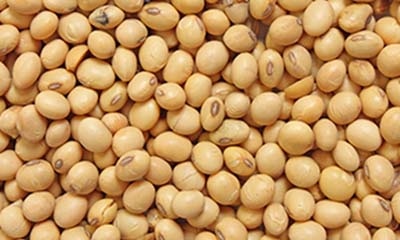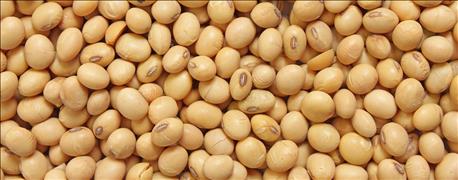
by Shruti Date Singh and Lydia Mulvany
Archer-Daniels-Midland Co. and Bunge Ltd., two of the largest U.S. grain traders, said they won’t accept a new variety of genetically-modified soybean being marketed by Monsanto Co. because it hasn’t been approved by the European Union and may put exports at risk.
Related: ASA urges approval of biotech traits in EU

Farmers have been asking ADM in recent weeks about Monsanto’s Roundup Ready 2 Xtend soybeans, Jackie Anderson, a spokeswoman for Chicago-based ADM, said in an e-mail Monday. Until it’s approved by all major export markets, including the EU, ADM “cannot accept it at our facilities,” she said. White Plains, New York-based Bunge posted signs at its facilities and notices on its website as of March 31 about its decision, according to spokeswoman Susan Burns.
“The wide-scale planting of traits that are not approved by key importing countries has the potential to seriously diminish the competitiveness of American grain and feed exports, and can result in damages throughout the entire agricultural supply chain,” Anderson said. “ADM’s policy is not to accept any commodity that contains a trait until it is approved in all of our major export markets.”
Related: China clears Monsanto's Xtend soybeans for import
A letter from grain groups representing traders sent to St. Louis-based Monsanto on April 29 criticized the seed maker for selling its Roundup Ready 2 Xtend soybeans to farmers this season before receiving the green light from the EU, a major importer. The groups, which include the National Grain and Feed Association, North American Export Grain Association, National Oilseed Processors Association, said they had “grave concerns” that the export sector is at risk, and asked how the company planned to make sure the unapproved commodity won’t be commingled with approved supplies, according to the letter.
The grain groups in the letter also said they are concerned that Monsanto “has deviated dramatically from its previous prudent policy of securing U.S. export market approvals” before selling the seed in the country.
‘Imminent’ Approval
EU approval of the soybeans is “imminent,” Monsanto spokeswoman Christi Dixon said in an e-mail. The new soybeans have been approved by the European Food Safety Authority, which issued a positive scientific opinion last June. With planting starting in the U.S., Monsanto is giving farmers a choice of planting the new soybeans or an incremental product. Growers can also trade in or cancel orders, with the company waiving certain charges, Dixon said.
Monsanto expects farmers to seed 3 million acres of the soybean this year, which are resistant to two herbicides, glyphosate and dicamba. The company is developing products to address the declining effectiveness of the herbicide glyphosate, sold by Monsanto as Roundup, as weeds become resistant. Chief Operating Officer Brett Begemann said during an earnings call in April that demand for the technology was strong.
This is the latest tussle between grain traders and seed companies amid a patchwork of global regulations and approvals for different seed varieties. Corn farmers and traders have alleged losses reaching billions of dollars after China two years ago rejected corn shipments containing traces of Syngenta AG’s genetically modified corn marketed as Viptera and Duracade, Bloomberg Intelligence Analyst Brandon Barnes said in a report in December.
Related: EPA extends comment period for in-crop use of dicamba
The stakes may be even higher now for both sides than a few years ago as they cope with a commodity downturn amid three straight years of lower corn, wheat and soybean prices. Grain traders face smaller profits on slowing global demand growth and don’t want to lose export customers. Meanwhile, Monsanto and other companies selling agricultural products -- from tractors to seed to fertilizer -- are seeing sales slide as farmers cut back purchases because their incomes are dropping.
--With assistance from Megan Durisin.
To contact the reporters on this story:
Shruti Date Singh in Chicago at [email protected]
Lydia Mulvany in Chicago at [email protected]
To contact the editors responsible for this story:
Simon Casey at [email protected]
Millie Munshi, Carlos Caminada
© 2016 Bloomberg L.P
About the Author(s)
You May Also Like




